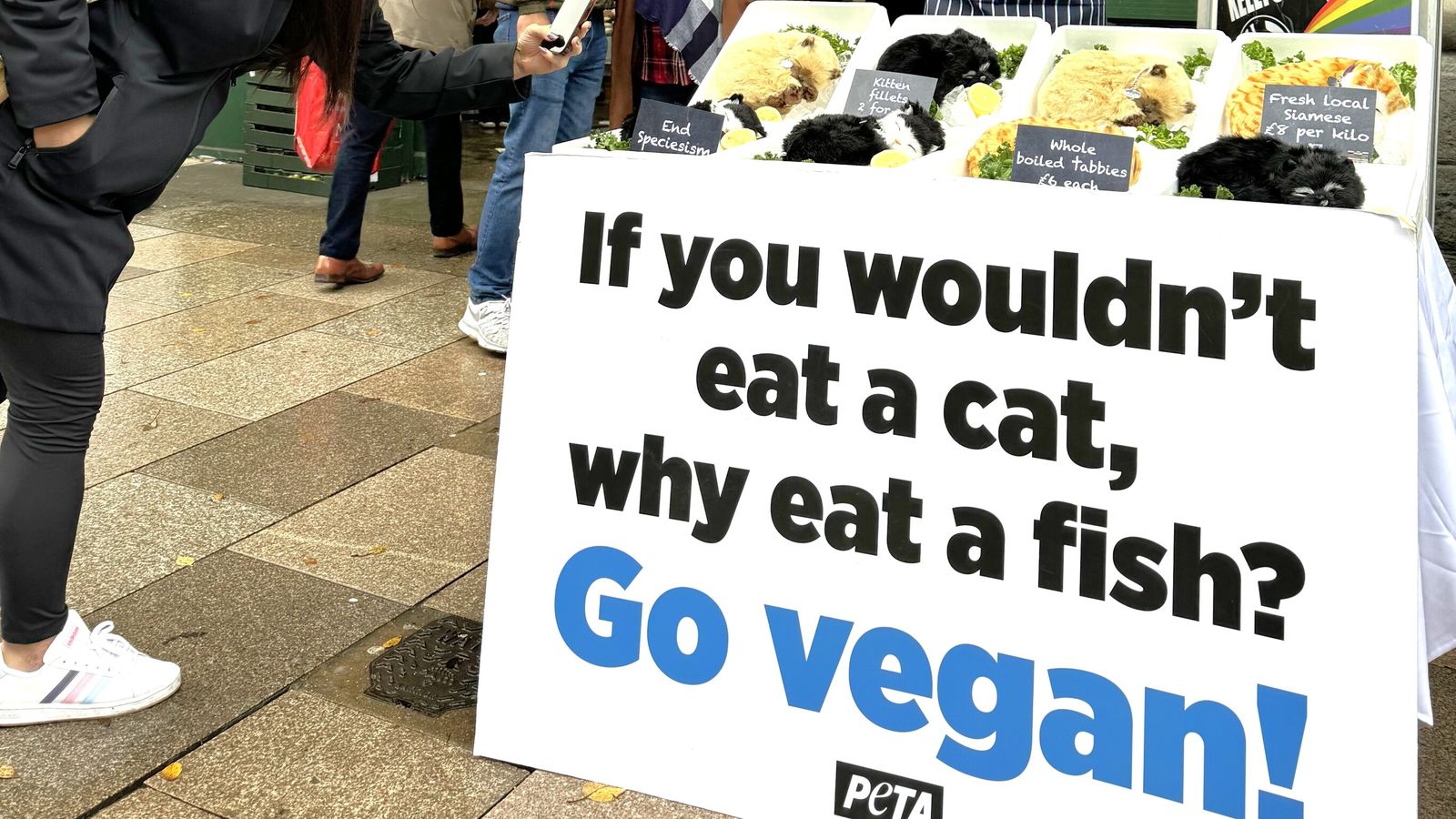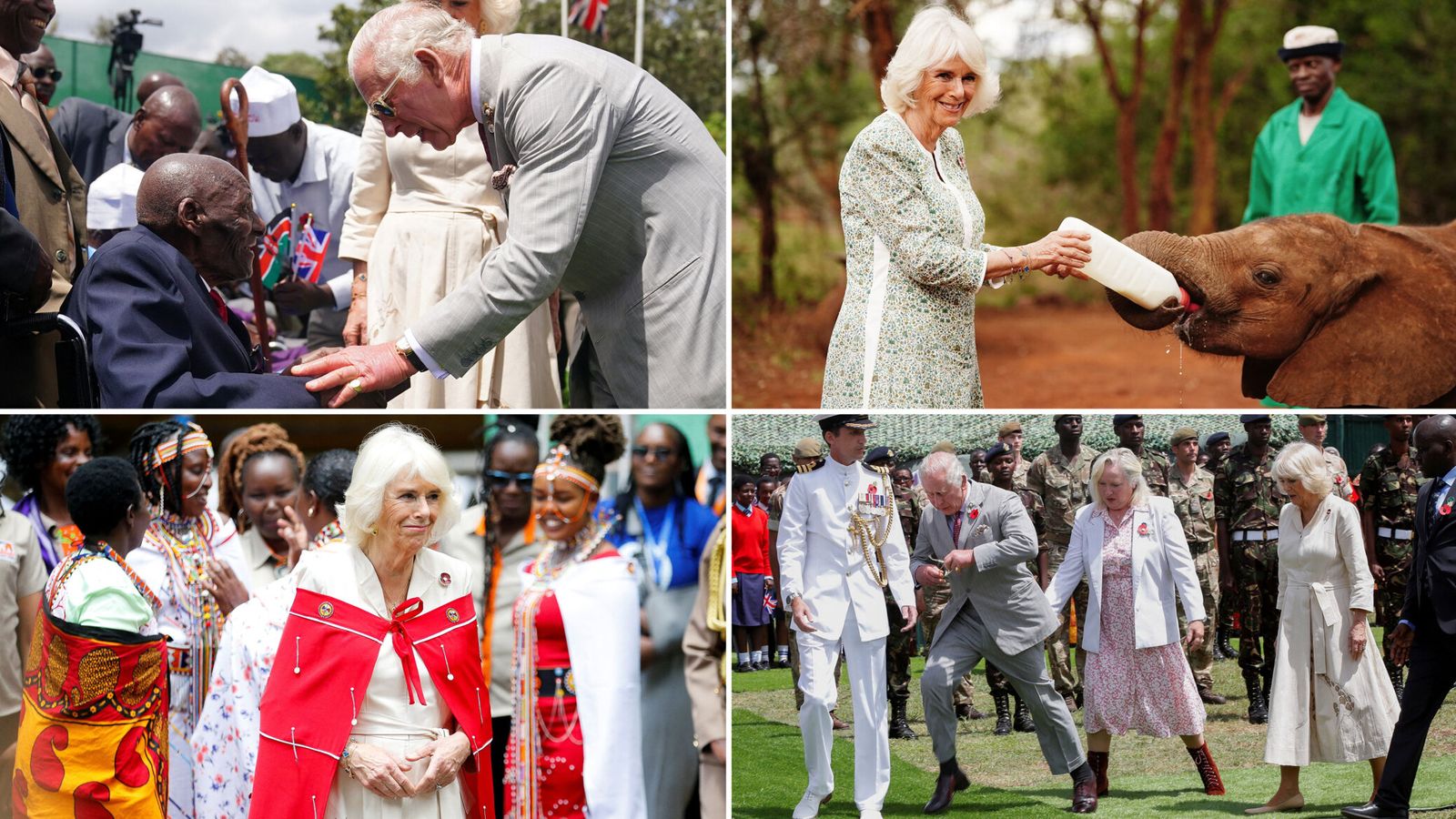A so-called “catmonger” has been serving mock “kitten fillets” at a city centre market.
PETA (People for the Ethical Treatment of Animals) was behind the pop-up stall publicity stunt in Cardiff on World Vegan Day.
It says it is the largest animal rights organisation in the world, whose entities have more than nine million members and supporters across the globe.
It hoped that after the “sell-off” to raise awareness at Cardiff market, people would see fish as “intelligent, feeling individuals”.
The animal rights group said fish have “long memories” and “cultural traditions”.
It claimed every person who goes vegan “saves the lives of nearly 200 animals (including aquatic ones) each year”.
World Vegan Day was first held in 1994 when the president of the Vegan Society was looking for a suitable setting to celebrate its 50th anniversary.
XL bully ban: Mum of boy killed in attack says bad breeders will ‘still be at large’
Renewed calls for balloon release ban after seal pup’s death in North Wales
XL bully dogs to be banned from end of this year
“Fish are as playful, inquisitive, and sensitive to pain as the cats we share our homes with, yet more fish are killed for food each year than all other animals combined,” said Kate Werner, PETA’s senior campaigns manager.
“PETA is calling on everyone to see things differently and to leave all animals – whether they have fur or fins – off their plates.”
‘Struggling’ fishmongers defend industry
Rex Goldsmith is president of the National Federation of Fishmongers.
He said the federation believed in people’s “right to protest” but that many small businesses including small fishmongers are “struggling”.
“Like all small businesses, there’s always obstacles in the way and that’s just another thing to try and overcome,” he said.
Read more from Sky News:
No 10 had ‘unbelievably bullish’ approach to COVID
Bed bugs found in library amid ‘out of control’ spread
Be the first to get Breaking News
Install the Sky News app for free
Mr Goldsmith said his business bought a lot of its fish directly from fishermen who treat the fish “with as much respect as possible”.
“Some of those vast, big trawlers that catch fish by the absolute tonne and they’re all crushed to death by the time they’re landed, a lot of that goes into massive, massive factories for processing,” he added.
“Not necessarily into independent fish shops that try and buy as ethically as they can, as sustainably as they can.”











